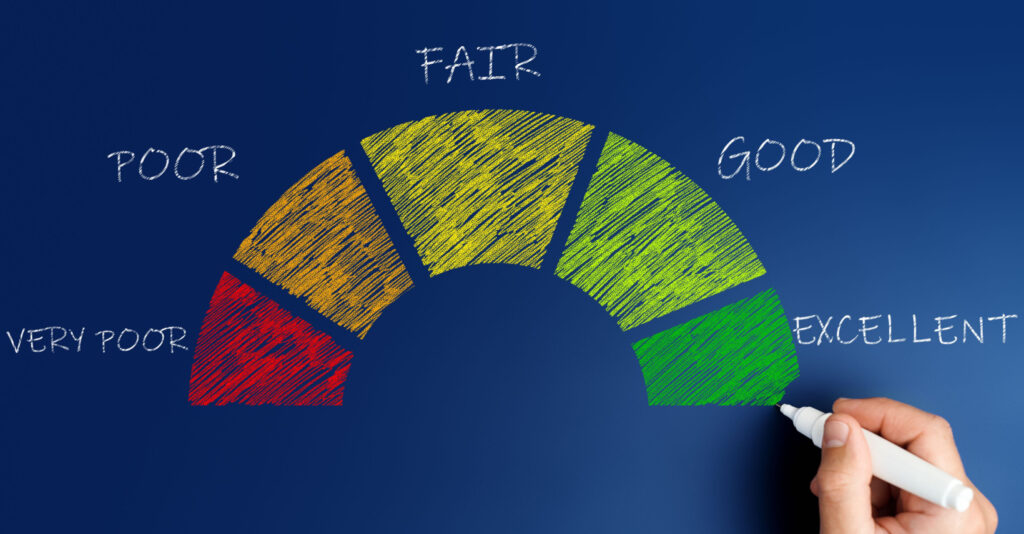Your credit score is a numerical expression of your credit files, accounts, and assets. Your credit score, which the three major credit bureaus disclose on your credit report, basically reveals your financial standing regarding your debt. Credit scores help you apply for loans, leases, homes, and more, and many lenders use them to indicate your trustworthiness with credit lines. But, if your credit score is lower than you want it to be, how can you raise it? In this article, we will be discussing some surefire ways to boost your credit score.
What Does My Credit Score Mean?
Your credit score is a number assigned to you that tells lenders how likely you are to repay a loan. It tells lenders about your creditworthiness, and the higher the credit score number, the more likely lenders will be to give you money. Similarly, the lower your credit score, the less likely you will be given loans or additional credit cards. Your credit score is based on your credit history, including your current open accounts, credit age, current balances, on-time payment history, and other factors.
How Much Can I Actually Raise My Credit Score?
If you take the proper steps, you can raise your credit score quite a bit. But you have to be realistic. For example, if you want to increase your credit score by 100 points, it’s not going to happen in a day or even a few weeks. In fact, it can take many months (and even years) to raise your score by that much. However, it is still achievable.
You can raise your credit score faster if you are consistent, reliable, and trustworthy with your credit lines and money. And with the steps we will outline below, you really can get your credit score up several points.
Ways to Raise Your Credit Score
In the following section, we will discuss several ways to raise your credit score. Of course, implementing all of these methods simultaneously will help boost your credit score the most and the fastest, but even doing one or a few of them will help you see your overall score go up a few points.
1. Pay Credit Card Balances Strategically
It is advised that you don’t use more than 30 percent of your credit limit on any of your credit lines. The amount you do use is known as your credit utilization. Your credit utilization is the second biggest factor in your credit score, so keeping your balance paid down is essential if you want a high credit score. General tips for doing this include:
- Do not spend more credit than the cash you actually have available.
- Always pay off your balance before the end of your billing cycle.
2. Ask For Your Credit Limits To Be Raised
If your credit limits are increased, but your balance stays the same, this will affect your credit utilization. And as we already mentioned, credit utilization is critical for a healthy score. So, asking for higher credit limits from your card issuer while not increasing your balance will lower your credit utilization. And it will do so without you needing to pay extra on your monthly bill. So if you want lower credit utilization but can’t afford to pay your balance down to zero, try asking for higher limits.
3. Become An Authorized User On Other Cards
If your parent, sibling, or relative has a credit card with a high limit and a relatively good credit score, you can ask to be added as an “authorized user” on their account. You’ll have your own card, which will show on your credit report. This will also lower your overall credit utilization, especially if the card has a high limit. This process is known as “piggybacking,” and is an excellent way for you to benefit from someone else’s high credit score and positive credit history.
The downside of piggybacking is that you will need to be extra careful not to charge anything to the card you can’t pay off immediately. After all, you don’t want to hurt someone else’s credit just to fix your own.
4. Check Credit Reports/Statements Thoroughly
Credit reports and credit bureaus are not perfect; mistakes happen! Therefore, when you get your credit reports and statements, you should thoroughly review them to ensure there aren’t any errors. Sometimes, errors can raise your account balance and bring your credit score down without you you even knowing. Unfortunately, mistakes on credit reports happen more often than you might think. In fact, nearly 30 percent of consumers find errors on their credit reports each year. So it is vitally important to thoroughly scan your credit reports and statements to ensure no mistakes are impacting your score.
5. Dispute Any And All Errors
Yes, errors can put a significant dent in your credit score. But if you are careful about checking your monthly reports, they won’t do any permanent damage. However, if you do find an error, you need to dispute it immediately.
To dispute an error on your credit report, you’ll need to write to the credit bureau and ask them to remove the inaccuracy. In some cases, you can even call them. The Federal Trade Commission has an excellent step-by-step guide on how to go about this.
Once resolved, you should see a positive impact on your credit score. Although it may take a month or two, so be patient. The impact of correcting these errors varies. But if your credit bureau is reporting an inaccuracy, it could raise your credit score significantly by resolving it.
6. Pay Off Collections Accounts
One of the first things you should do when trying to improve your overall credit score is to pay off your collections accounts. If you keep an account in collections too long, the creditor can sue you for what you owe and then some. So paying off any outstanding bills in collections should be a priority for boosting your credit score. And above all, if you have credit card debt in collections, be sure to pay it all off before you open any more accounts. Your goals should be to get out of debt and start saving instead of running up more bills.
7. Rebuild Credit With A Secured Card
A secured credit card is essentially a regular credit card backed by a security deposit. Paying a deposit for the card takes the risk away from the card issuer and helps you to build your credit. This is especially good for people whose credit score is very low or those who need to build up more credit. Managing your balance and making payments on time is good practice and an ideal way to improve your credit score.
8. Add Additional Credit Accounts Carefully
Adding additional credit cards and accounts can actually help you to build your overall credit and improve your credit score, especially if it’s a type of credit you don’t already have. For example, if you only have credit cards, try taking out a loan. Likewise, if you only have loans, open a credit card or line of credit. However, do this carefully, as too many lines of credit will start to muddy your balance and could have an adverse effect.
Closing Thoughts
Improving a low credit score is tough work. However, if you have a low score, don’t be concerned that your financial life is in ruins. There are plenty of steps you can take to salvage your credit and help you appear more reliable to credit lenders. Of course, it will take some time and discipline. But if you plug away at it consistently, your credit will be on the mend before you know it.












